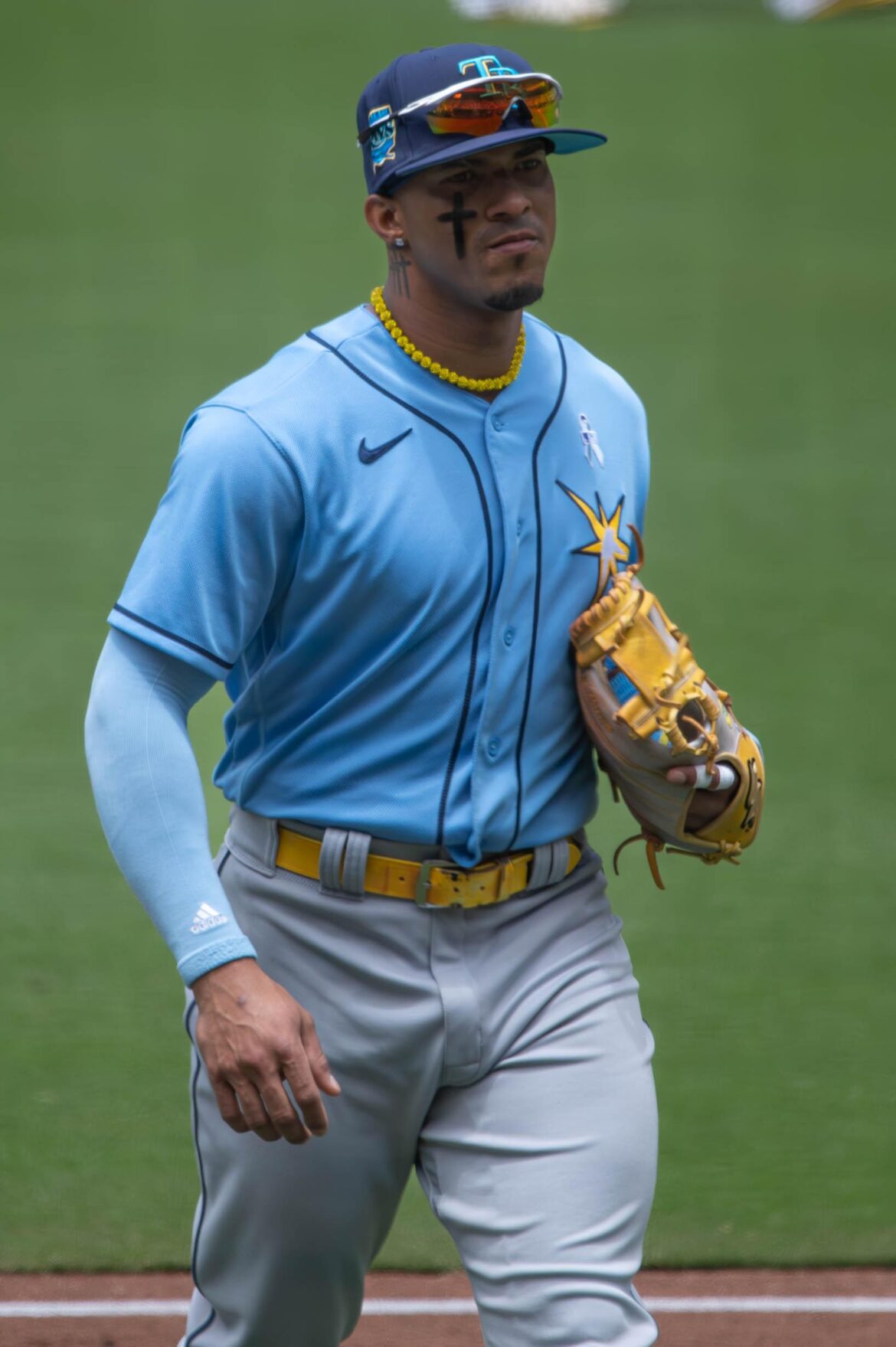In a striking turn of events that has sent shockwaves through the sports community, Wander Franco, the former Tampa Bay Rays star, has been convicted in a high-profile trial concerning allegations of underage sexual abuse. Once celebrated for his remarkable talent and potential on the baseball field, Franco’s career has been irrevocably altered following a legal battle that captivated the attention of fans and spectators alike. The verdict, delivered after days of testimony and scrutiny, raises serious questions about accountability and the impact of personal conduct on professional careers. As the ramifications of this case unfold, the baseball world grapples with the disheartening reality of a once-promising athlete’s fall from grace. This article delves into the details of the trial, Franco’s legacy, and the broader implications for the sport.
Wander Franco’s Fall from Grace: The Impact of a Conviction on His Career and Legacy
The recent conviction of Wander Franco marks a significant and troubling chapter in the narrative of the former Tampa Bay Rays star. Once celebrated for his athletic prowess and potential to become a household name, Franco’s legal troubles have profoundly altered public perception. With his name now synonymous with controversy rather than athletic excellence, the implications stretch beyond personal disgrace. Once an integral part of the Rays’ lineup and considered a cornerstone for the franchise, his conviction has initiated discussions about the accountability of athletes and the broader societal impact of such heinous actions. Fans, teammates, and analysts alike are forced to reconcile their admiration for his talent with the weight of his misconduct.
The fallout from Franco’s legal issues will undoubtedly reverberate throughout his career and legacy. Factors to consider include:
- Career Recovery: Future opportunities in the Major Leagues are likely to diminish, as teams weigh the potential risks versus rewards of signing a player with a tarnished reputation.
- Financial Ramifications: Endorsements and sponsorships are in jeopardy, potentially leading to significant financial losses.
- Fan Reaction: The loss of support from fans, many of whom may feel betrayed, will alter how he is remembered in baseball history.
Evaluating his legacy also involves understanding the stigma attached to athletes involved in similar controversies. Franco’s situation serves as a stark reminder of the responsibilities that come with fame and success, raising critical questions about the protective measures organizations should implement to prevent such incidents. As the baseball community grapples with these pressing issues, it becomes evident that Franco’s fall from grace is not merely a personal tragedy but a collective reckoning for the sport.
Understanding the Legal Framework: Implications of Underage Sexual Abuse Cases in Sports
In the aftermath of high-profile cases like that of Wander Franco, the implications of underage sexual abuse in sports extend far beyond the courtroom. Legal frameworks across various jurisdictions tend to include a patchwork of laws addressing consent, mandatory reporting, and institutional responsibilities. Many states impose strict penalties for engaging in sexual relations with minors, recognizing the inherent power dynamics at play in the realm of professional sports. Factors such as statutory rape laws, aggravated assault statutes, and child protection laws serve crucial roles in shaping the discourse surrounding these cases.
Moreover, the repercussions for sports organizations can be severe. Institutions may face civil lawsuits, damage to their reputation, and loss of sponsorships, prompting a need for enhanced safeguarding measures. In many instances, the following considerations are critical in shaping organizational policy:
- Training programs for coaches and staff on recognizing and reporting abuse
- Creating a culture of accountability that prioritizes athlete welfare
- Implementing clear protocols for reporting suspicions of abuse
As cases unfold, the conversation surrounding the adequacy of legal protections continues to grow, underscoring the urgent need for comprehensive reforms that not only hold perpetrators accountable but also foster safer environments for young athletes.
- Advertisement -
Creating a Safer Environment: Recommendations for Teams and Organizations to Prevent Abuse
In light of recent events surrounding high-profile cases of abuse in sports, it is imperative for teams and organizations to take proactive steps in safeguarding their environments. Establishing comprehensive policies against harassment and abuse can foster a culture of respect and accountability. Key strategies should include:
- Implementing Mandatory Training: Regular workshops focused on understanding boundaries, consent, and recognizing the signs of abuse should be required for all personnel.
- Encouraging Open Communication: Create safe channels for victims and witnesses to report incidents without fear of retaliation, ensuring anonymity where necessary.
- Conducting Thorough Background Checks: Before onboarding staff or volunteers, it is essential to screen individuals for any past misconduct or criminal behavior.
To further enhance safety, organizations can also consider forming dedicated oversight committees that regularly review policies and protocols related to abuse prevention. These committees can be tasked with:
| Committee Focus | Actions |
|---|---|
| Policy Review | Analyze existing policies for gaps and propose updates. |
| Incident Reporting | Monitor and assess the effectiveness of reporting systems. |
| Education and Awareness | Promote ongoing educational programs for players and staff. |
By implementing these recommendations, teams and organizations can create a more secure environment for all involved, ultimately leading to a healthier and more productive culture in sports and beyond.
Closing Remarks
In light of the recent conviction of Wander Franco, the former Tampa Bay Rays star, significant conversations surrounding athlete accountability, the protection of minors, and the implications of such actions in professional sports are paramount. As the legal proceedings unfold and the impact of this verdict resonates through the sports community, it remains crucial for institutions to prioritize safeguarding vulnerable individuals. Franco’s case serves as a sobering reminder of the responsibilities that come with fame and the need for a thorough reevaluation of player conduct and support systems in the world of athletics. The ramifications of this trial will undoubtedly extend beyond the baseball diamond, prompting critical discussions about ethics, morality, and justice in sports.
- Advertisement -


